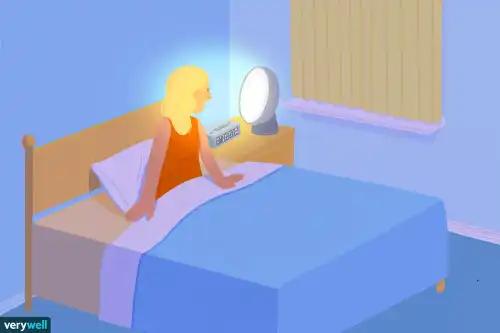Rise and Shine! Sleep Better and Wake Up at the Same Time Every Day
Curated from: verywellhealth.com
35
2
Explore the World's Best Ideas
Join today and uncover 100+ curated journeys from 50+ topics. Unlock access to our mobile app with extensive features.
How To Sleep Better
- Many people have trouble sleeping and need to set a path toward better sleep.
- The first step to the path is to wake up at the same time every day, including weekends.
- It does not matter what time you decide to wake up, as different people have different lifestyles and sleeping patterns.
269
2.29K reads
The Science Behind A Consistent Waking Up Time
Our bodies follow a certain circadian rhythm that relies on us following a consistent sleeping time.
One can use the morning sunrise as an anchor to your wake time. Having a fixed time also builds a sleep drive gradually, as the body gets in the habit of falling asleep at the same time at night.
231
1.78K reads
Benefits Of A Fixed Wake Time
- Less sleep inertia and an easier transition from sleep.
- Easier to fall asleep, with less sleep depravity or need for naps.
- Less need for coffee, and a cheery mood.
- An alert mind, sharper focus, and improved short-term memory.
- More healing of the body.
- Less irritation during the day.
- Better immune system functioning.
- Better working and driving ability.
289
1.81K reads
Don't Push The Snooze Button
We should follow the alarm that is set, and get up at the time. If it is slightly difficult, you can set up multiple alarms in the initial mornings, but do not hit the snooze button while half asleep. That’s cheating.
If you have trouble sleeping due to sleep apnea or are showing signs of insomnia, do consult a sleep specialist.
217
1.71K reads
IDEAS CURATED BY
Laila 's ideas are part of this journey:
Learn more about health with this collection
Strategies for promoting inclusivity
How to address unconscious bias
How to create a diverse and inclusive workplace
Related collections
Similar ideas
Read & Learn
20x Faster
without
deepstash
with
deepstash
with
deepstash
Personalized microlearning
—
100+ Learning Journeys
—
Access to 200,000+ ideas
—
Access to the mobile app
—
Unlimited idea saving
—
—
Unlimited history
—
—
Unlimited listening to ideas
—
—
Downloading & offline access
—
—
Supercharge your mind with one idea per day
Enter your email and spend 1 minute every day to learn something new.
I agree to receive email updates
